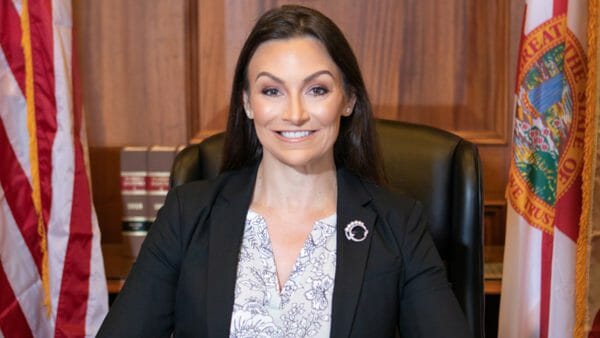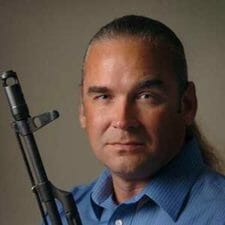
Florida – -(AmmoLand.com)- If the gun-banners get their way, they’ll be importing more from Florida than just citrus.
A lawsuit now before the Florida Supreme Court seeks to dismantle the state’s powerful preemption statute, which safeguards all pro-gun laws in the Gunshine State, including the Castle Doctrine, the “Stand Your Ground” statute, and shall-issue concealed carry.
Florida’s preemption statute prohibits anyone other than the state legislature from regulating firearms and ammunition. If a local government such as a city council, county commission or school board tries to create their own gun regulations, the preemption statute allows for their members to be removed from office and fined up to $5,000, which the statute requires them to pay personally, rather than with taxpayer dollars. In addition, the local government can be liable for damages of up to $100,000 plus uncapped attorney’s fees. The law was passed in 1987, but it didn’t get teeth – legal penalties – until 2011.
Without the preemption statute, anti-gun cities and counties could prohibit concealed carry, which would turn the state into a complex patchwork of gun-free zones.
More than 40 states have preemption statutes prohibiting local governments from regulating firearms. Six states – Arizona, Florida, Kentucky, Mississippi, Oklahoma, and Texas – can penalize elected officials for violating their statutes.
Enter Nikki Fried
In June, Florida Agriculture Commissioner Nikki Fried and a coalition of liberal local governments petitioned the Florida Supreme Court to hear their lawsuit against the preemption statute. It was one of three lawsuits filed against the law after the 2018 Parkland massacre. Fried’s request came a month after the 1st District Court of Appeal denied to certify the group’s “questions of great public importance,” which could have created a path to the Florida Supreme Court.
In essence, Fried and her group are asking the Florida Supreme Court to grant them immunity from the penalties they could face for violating the preemption statute. They do not contest the statute, just the penalties, which they claim are unconstitutional because the local lawmakers don’t want to be fined or fired for creating their own anti-gun regulations.
This month, Fried and her group filed a joint brief with the Florida Supreme Court, and a subsequent press release.
“Petitioners ask this Court to recognize a fundamental principle of democratic governance: local elected officials acting in their legislative capacities are entitled to the same immunities and protections historically afforded to all legislators in this country, and the judicial power of the state does not extend to impose financial liability on local governments for the performance of discretionary governmental functions. While the judiciary can, and should, exercise its power to determine whether a local law is preempted (and thus invalid), it may not punish local governments or their elected officials for their legislative actions as is contemplated by the Penalty Provisions. This Court should reverse the First District’s decision,” the petitioners’ joint brief states.
According to the press release, Fried’s coalition consists of Florida Rep. Dan Daly, a Democrat from Sunrise, two Democratic mayors, 30 cities, and three counties. Amicus briefs, it says, will be forthcoming from Giffords, Brady, and the League of Women Voters of Florida, which has become an extreme anti-gun group.
Challenging DeSantis
Those unfamiliar with the structure of Florida’s government may question why the state’s Agriculture Commissioner is challenging preemption. There are several reasons. Fried is the only elected Democrat holding statewide office and she is decidedly anti-gun. Her Agriculture Department oversees Florida’s licensing division, which operates the state’s popular Concealed Weapon and Firearm Licensing program. As the elected official accountable for the CWFL program, Fried’s management has been abysmal and the subject of lawsuits. While she has claimed to be a gun owner and CWFL licensee, Fried also has a Florida medical marijuana card, despite the federal legal issues this creates.
The main reason Fried is fighting the preemption statute is due to her candidacy for governor. Some pundits believe her lawsuit is nothing more than a fundraising and publicity stunt in her race against Republican incumbent Gov. Ron DeSantis.
Fried did not respond to interview requests seeking her comments for this story.
The Playbook
In her press release, Fried cites data from a scholarly paper written by two Columbia Law School professors titled: “Punitive Preemption: An Unprecedented Attack on Local Democracy.” One of the authors, Professor Richard Briffault, is described in his law school bio as “a leading thinker on ‘the new preemption,’ a critique of states that are increasingly passing ideological laws that override local ordinances. Working with the Local Solutions Support Center, he educates city and county government officials on how to respond to state preemption.”
In her lawsuit, Fried clearly took a page from Professor Briffault’s anti-preemption playbook, as she incorporated several of his suggestions that show how local officials should fight what Briffault calls “punitive preemption,” namely, challenging the statute’s constitutionality based upon the First Amendment, and by arguing that “coercive financial penalties could be inconsistent with home rule.”
If Fried’s lawsuit is successful, it will serve as a template for anti-gun groups in other states who seek to overturn their preemption statutes.
This story is presented by the Second Amendment Foundation’s Investigative Journalism Project and wouldn’t be possible without you. Please click here to make a tax-deductible donation to support more pro-gun stories like this.
About Lee Williams
Lee Williams, who is also known as “The Gun Writer,” is the chief editor of the Second Amendment Foundation’s Investigative Journalism Project. Until recently, he was also an editor for a daily newspaper in Florida. Before becoming an editor, Lee was an investigative reporter at newspapers in three states and a U.S. Territory. Before becoming a journalist, he worked as a police officer. Before becoming a cop, Lee served in the Army. He’s earned more than a dozen national journalism awards as a reporter, and three medals of valor as a cop. Lee is an avid tactical shooter.

